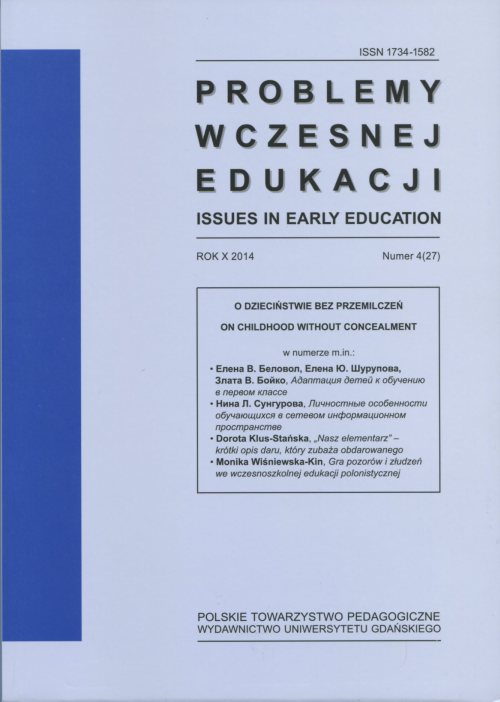Gra pozorów i złudzeń we wczesnoszkolnej edukacji polonistycznej
Słowa kluczowe:
edukacja polonistyczna dzieci w młodszym wieku szkolnym, kształcenie językowe, kształcenie umiejętności pisemnego wypowiadania, rozwijanie postaw składających się na kulturę bycia w zróżnicowanym środowisku informacyjnym, projekt kształcenia językowegoAbstrakt
The goal of this paper is to determine the areas of inefficiency of educational influences in the field of Polish language education in teaching early primary school children. Three areas require a fundamental change: language training focused on the implementation of the knowledge of the language structure, training the skills of written expression, and developing attitudes that make up the culture of being in a diverse information environment. Showing omissions of school in these three areas, the paper presents a project of language education oriented not towards familiarizing a child with the knowledge of the language structure, but towards portraying the nature of language, i.e., taking interest in how a child, while applying language, marks its being in the world, how it acts via language, how it uses language to reach the mysteries of the world and what it does with language during this operation. The final comments suggest that school is there to help a child to interpret the world, to recognize various phenomena, to assume attitudes towards them, and to make their independent evaluation.

 Uniwersyteckie Czasopisma Naukowe
Uniwersyteckie Czasopisma Naukowe





